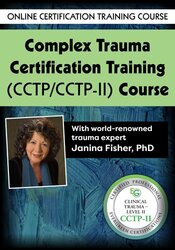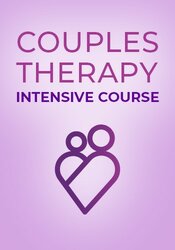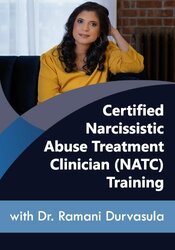With PESI's self-study materials, you can learn at your own speed and from any location.

-
Online CourseComplex Trauma Certification Training Level 1 & 2 (CCTP/CCTP-II) Course with Janina FisherValue: £1,380.56 *£799.99Complex Trauma Certification Training Level 1 & 2 (CCTP/CCTP-II) Course with Janina Fisher28 Aug, 2020Complex Trauma Certification Training Level 1 & 2 (CCTP/CCTP-II) Course with Janina FisherValue: £1,380.56 *£799.99
-
Online CourseExplore modern love complexities with clinical experts. Gain practical insights for therapy. Elevate your practice. Join us!Value: £655.18 *£229.99Online CourseExplore modern love complexities with clinical experts. Gain practical insights for therapy. Elevate your practice. Join us!Value: £655.18 *£229.99Explore modern love complexities with clinical experts. Gain practical insights for therapy. Elevate your practice. Join us!Online CourseBecome a Certified Narcissistic Abuse Clinician! Join Dr. Ramani Durvasula, the world's most highly recognized narcissism expert, in this comprehensive training.Value: £896.98 *£625.00Online CourseBecome a Certified Narcissistic Abuse Clinician! Join Dr. Ramani Durvasula, the world's most highly recognized narcissism expert, in this comprehensive training.Value: £896.98 *£625.00Become a Certified Narcissistic Abuse Clinician! Join Dr. Ramani Durvasula, the world's most highly recognized narcissism expert, in this comprehensive training.Online CourseComplex Trauma Certification Training Level 1 & 2 (CCTP/CCTP-II) Course with Janina FisherValue: £1,380.56 *£799.99Online CourseComplex Trauma Certification Training Level 1 & 2 (CCTP/CCTP-II) Course with Janina FisherValue: £1,380.56 *£799.99Complex Trauma Certification Training Level 1 & 2 (CCTP/CCTP-II) Course with Janina Fisher
-
-
Staff Training
-
-
Innovations in Psychotherapy 2024
Here's your once-in-a-lifetime opportunity to master skills and access cutting-edge insight directly from the world's premier trauma experts
Featuring top psychotherapy experts....
Nadine Burke-Harris
Bessel van der Kolk, MD
Sue Johnson, EdD
Steven Hayes, PhD
Gabor Maté, MD, CM
Janina Fisher, PhD
Resmaa Menakem, MSW, LICSW, SEP
















